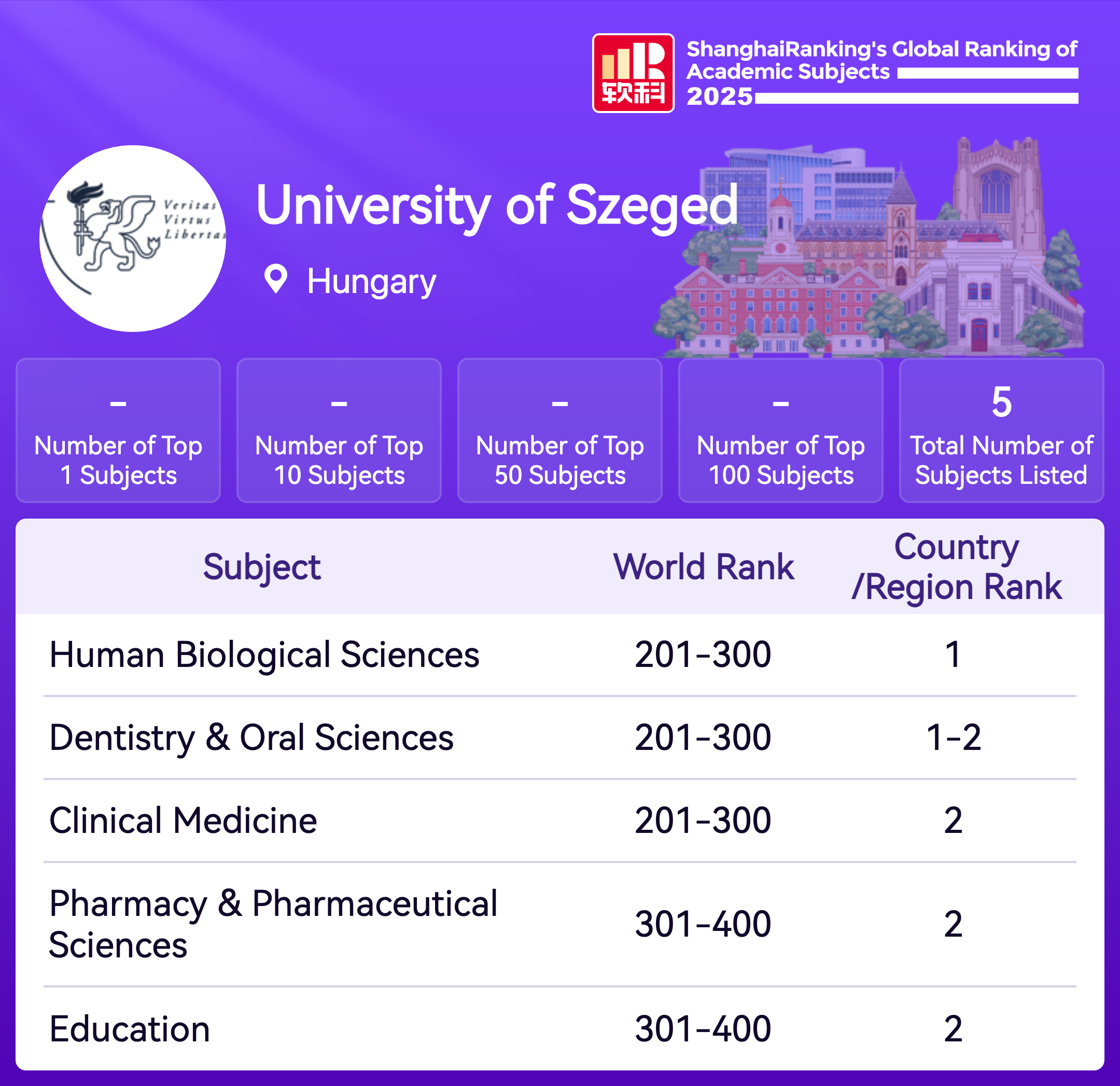 401-500
401-500 


The University of Szeged traces its origins back to 1581 with the foundation of the Academia in Cluj (Kolozsvár). In 1872 the Hungarian royal university was established and the university operated in Cluj until 1921 when it was moved to Szeged. The year 2000 was a milestone in the history of the university: the higher education institutions of Szeged were integrated under the name University of Szeged. At present the University has 12 faculties covering the fields of arts, sciences, law, economics and business administration, engineering, medicine, pharmacy, dentistry, health sciences, education, agriculture and music. It also provides quality education at the levels of Bachelor, Master, scientific (PhD), higher-level vocational and postgraduate specialist training programmes. The University of Szeged is one of the most popular universities in Hungary, occupying high places in all the international rankings. The number of its academic research and teaching staff reaches 2200 teaching and training up to 21 000 students. It has been considered for years as one of the world’s best 500 universities and it is known as a green institution. It offers a broad range of educational opportunities to home and foreign students. The University of Szeged is committed to helping students to make the most of their talents and abilities. A number of outstanding professors work and have worked at the University of Szeged, including Nobel Laureate Albert Szent-Györgyi, who was the first to isolate Vitamin C, extracting it from Szeged paprika. The University’s educational mission also embraces medical assistance, conducting internationally competitive research activities and fulfilling its role as a research university. The wide scope of its research and creative activities include basic and applied research, creative arts, product and service development. The University of Szeged, from a research perspective, enjoys clear strengths in the life sciences; specifically in neuroscience, cardiology and pharmacology as well as in mathematics and informatics. The research groups in the field of chemistry form a strong cluster. The University is now expanding its interdisciplinary research, launching several projects between the faculties of medicine and informatics such as “telemedicine”. The University is also making great efforts to include the humanities, social and natural sciences departments in its interdisciplinary approach. Linguistics, modern languages, chemistry and biological sciences are also growing research areas. The University has been developing a laser research centre, Extreme Light Infrastructure (ELI) in partnership with other universities in Romania and the Czech Republic. It should lead to new opportunities for the University in fundamental research, applied research and partnerships too; particularly in industries such as pharmaceuticals and aerospace. The University works in close cooperation with the Hungarian Academy of Sciences in three key research areas, namely in natural sciences, humanities as well as in life sciences. More information: http://www.u-szeged.hu/english
 401-500
401-500 
| Subject | Rank |
|---|---|
Human Biological Sciences | 201-300 |
Clinical Medicine | 201-300 |
Dentistry & Oral Sciences | 201-300 |
Pharmacy & Pharmaceutical Sciences | 301-400 |
Education | 301-400 |

